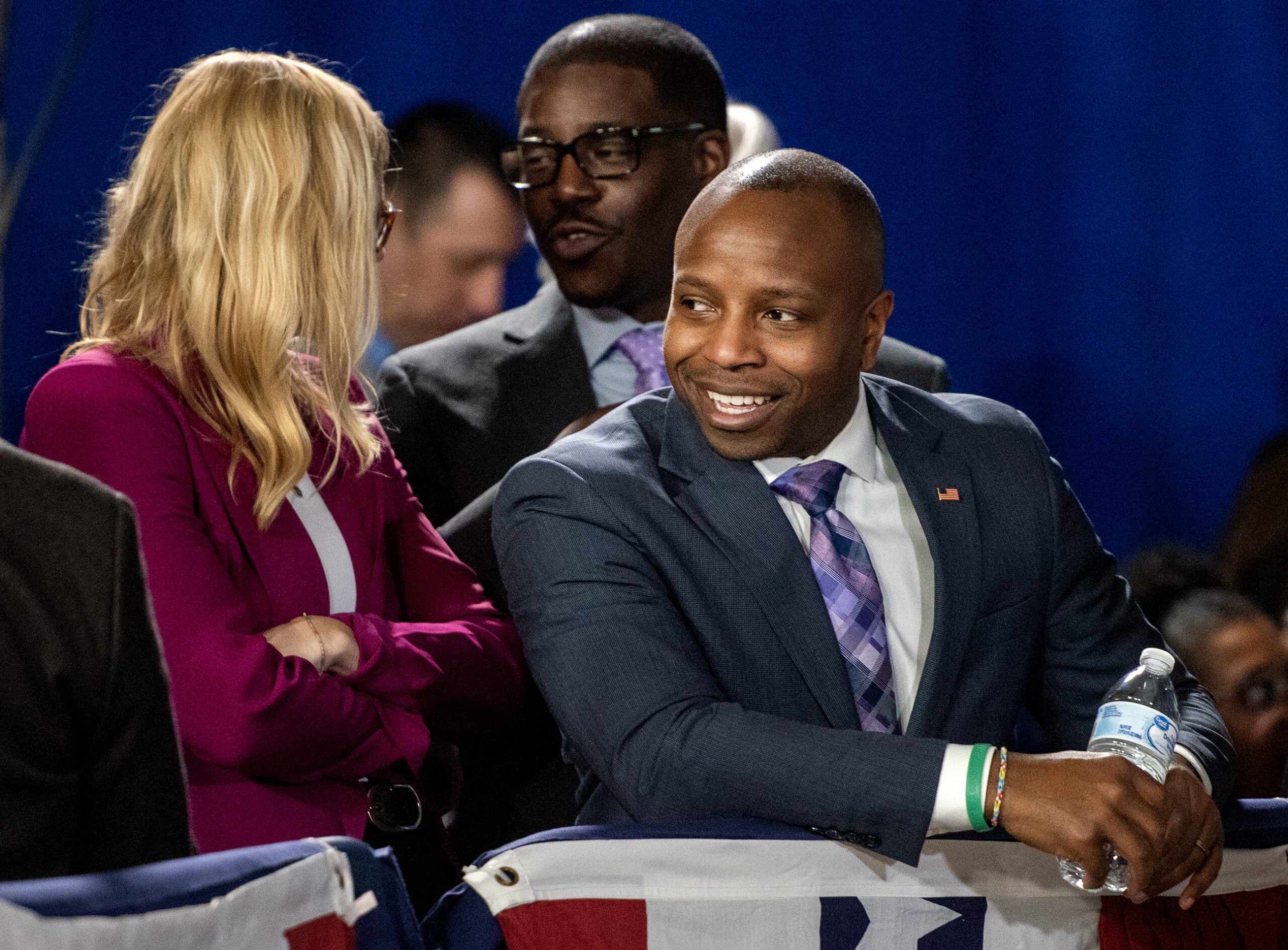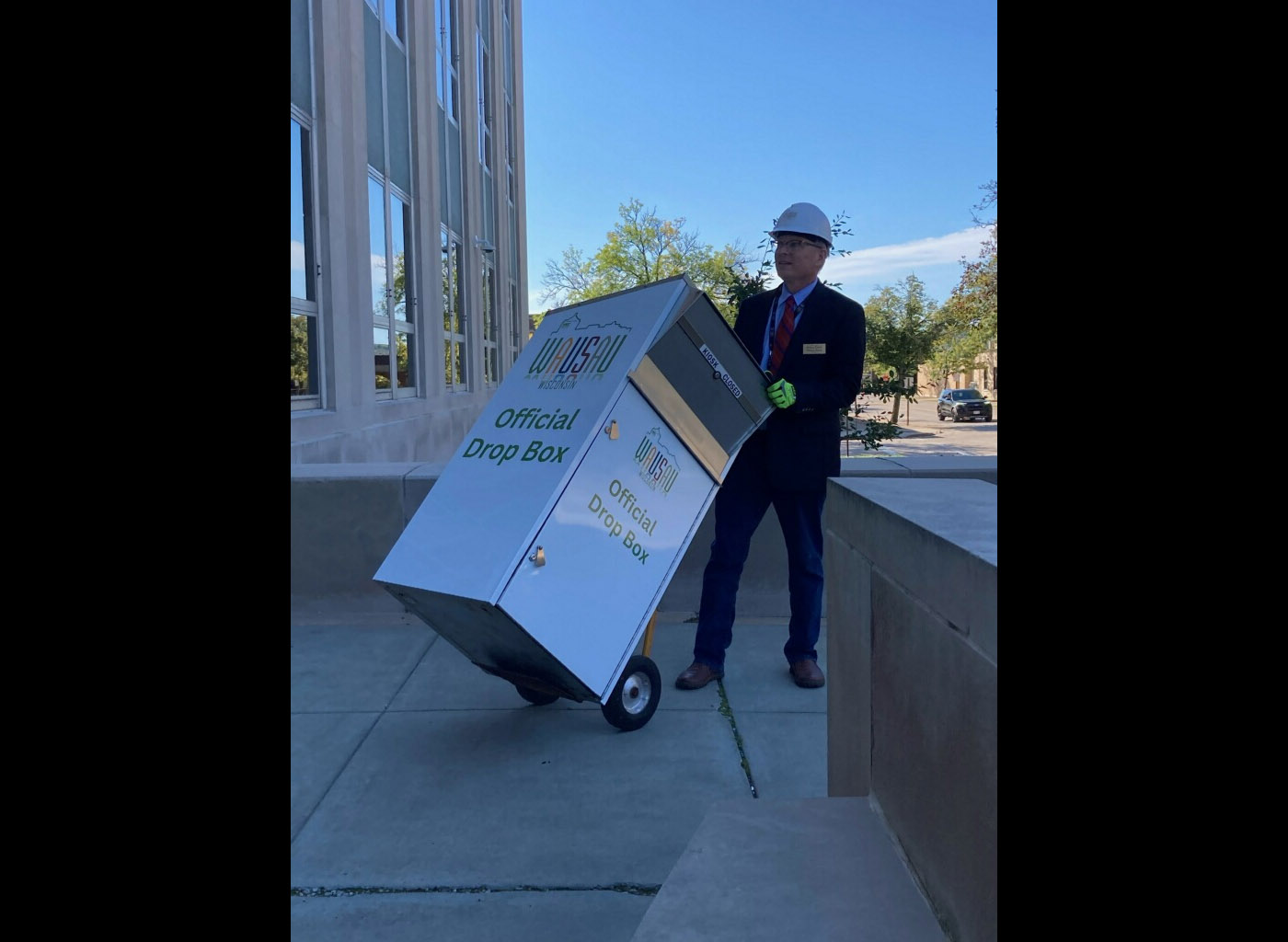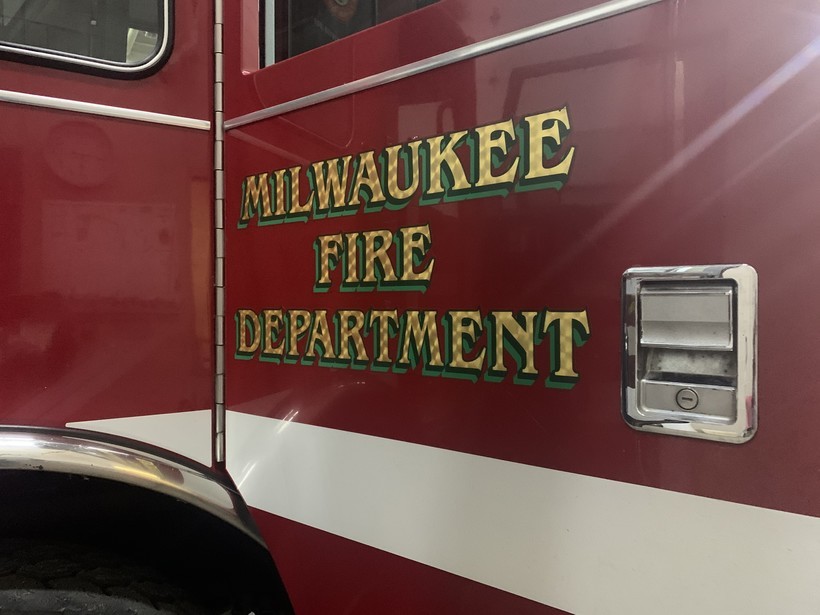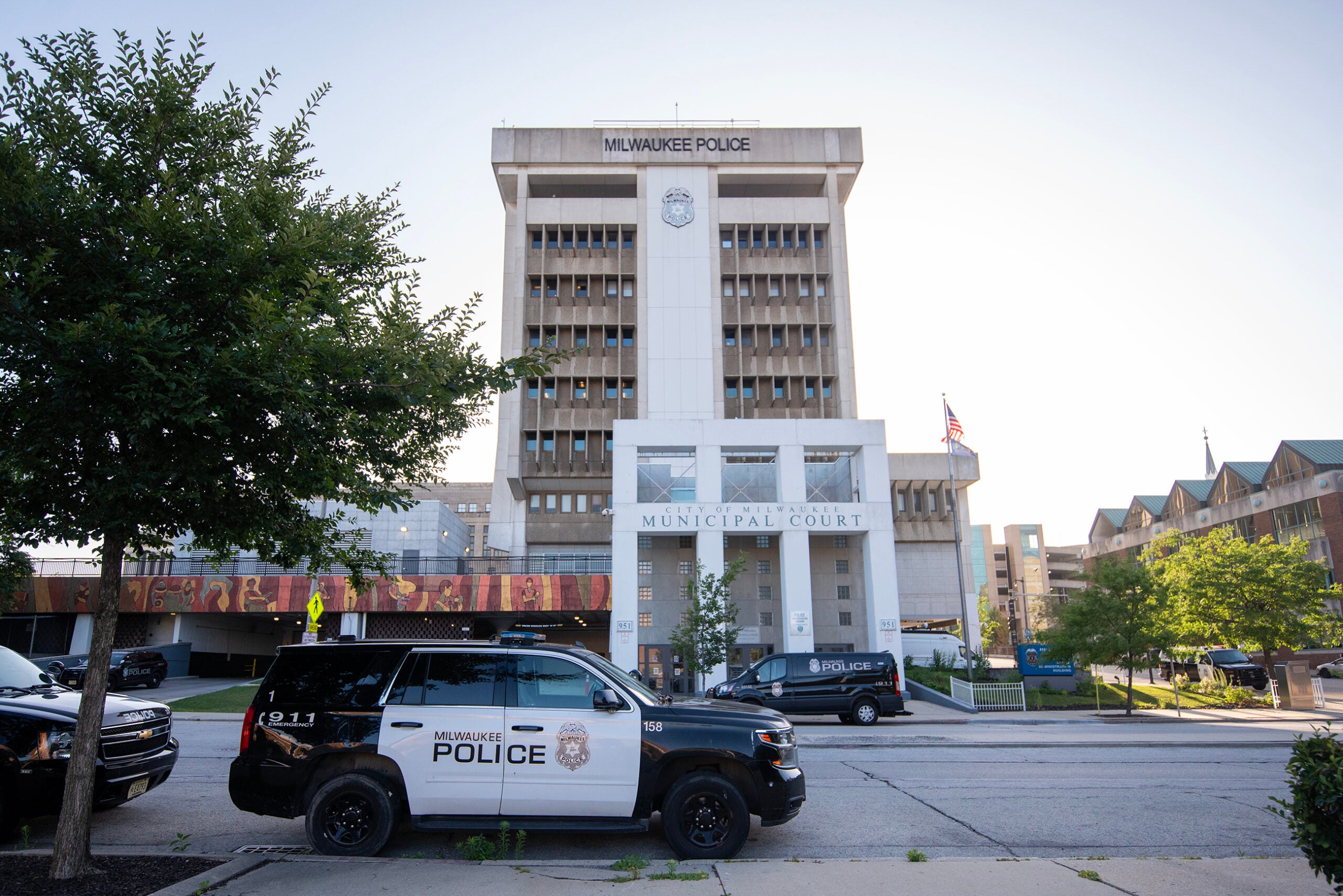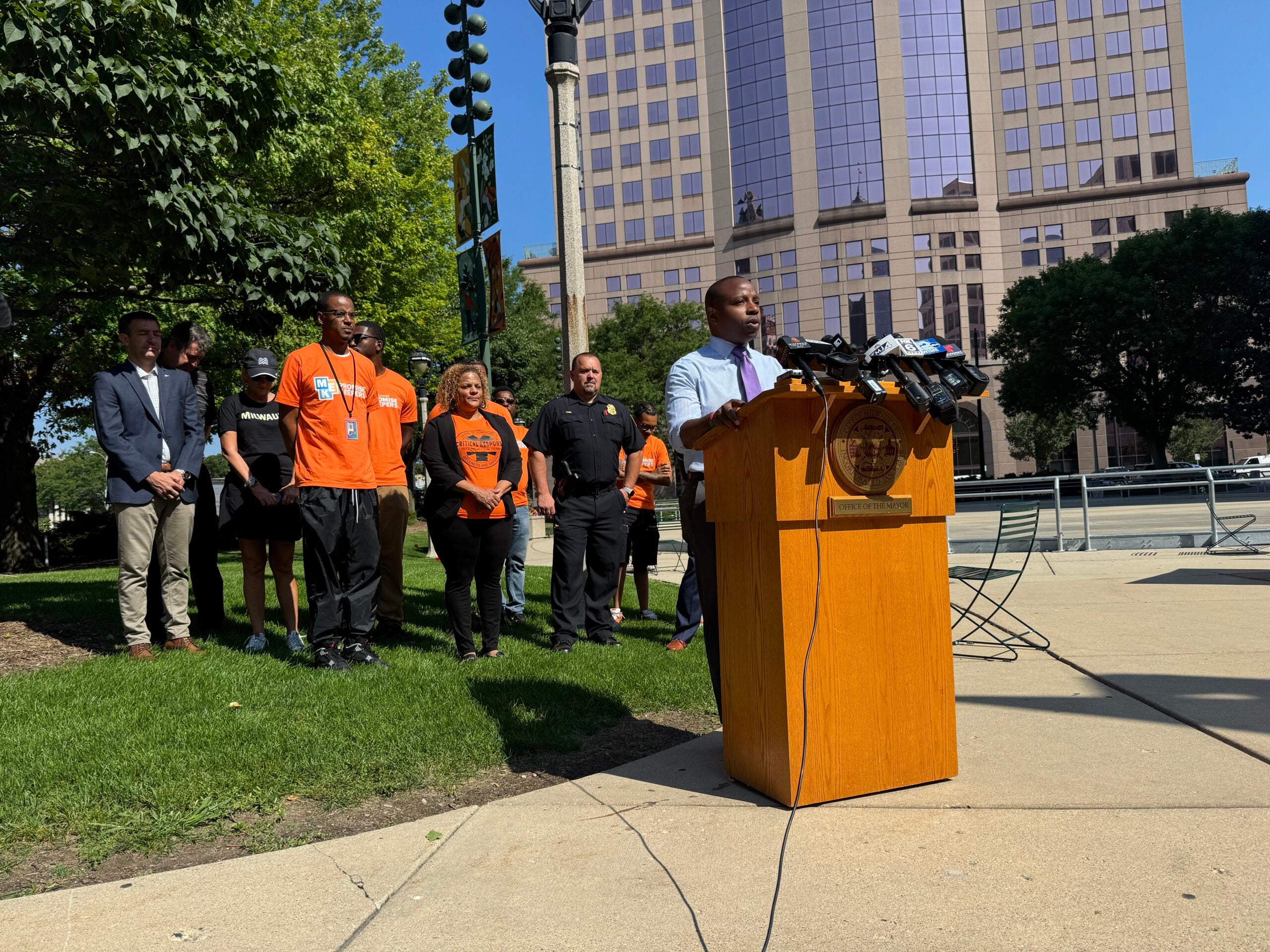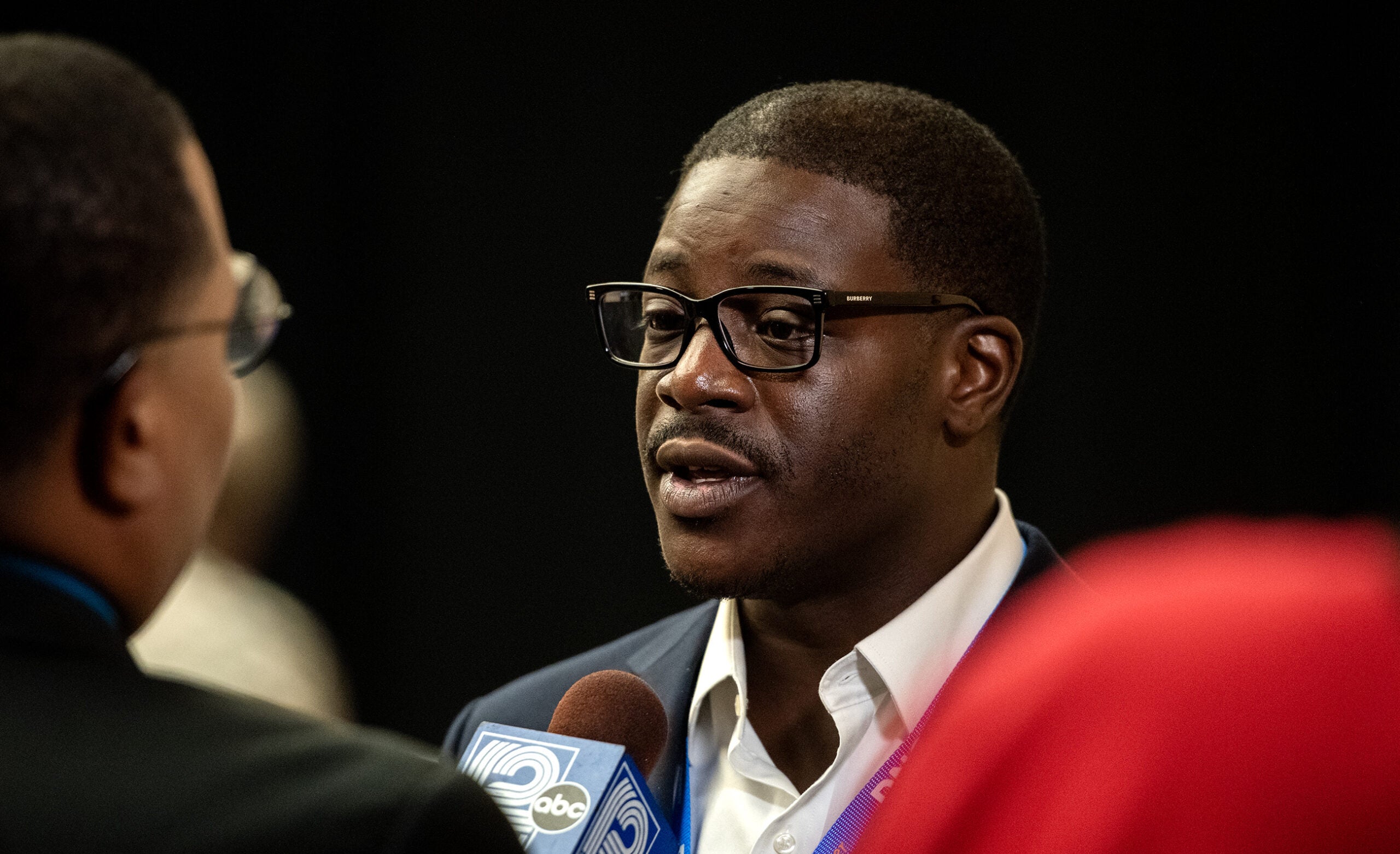Some people stumble into politics or discover it late in life. But Milwaukee Mayor Cavalier “Chevy” Johnson has known he wanted to run for office ever since he was a kid.
Born and raised in Milwaukee, Johnson grew up one of 10 siblings, moving around so much that he attended about a half-dozen elementary schools. He says he learned during this time what it was like to see violence, to be hungry and to have the power shut off when it was cold.
He remembers sitting on his porch on the city’s east side when he was in fourth grade, thinking to himself that he wanted to do things differently.
News with a little more humanity
WPR’s “Wisconsin Today” newsletter keeps you connected to the state you love without feeling overwhelmed. No paywall. No agenda. No corporate filter.
“I wanted more for myself, for my neighborhood, for my family,” Johnson said. “And really, for my city.”
Decades later, Milwaukee still faces its share of challenges, but Johnson has put himself in a position to do something about it.
In 2022, he made history as the city’s first ever elected Black mayor. In April, he won his first full term in office in a landslide.
His record has defied expectations for a Democratic big city mayor. He worked with Republicans to pass a new local sales tax, and was instrumental in the push to bring the Republican National Convention to Milwaukee.
When the RNC kicks off next week, it will put a national spotlight on the city — and to some extent, on Johnson.
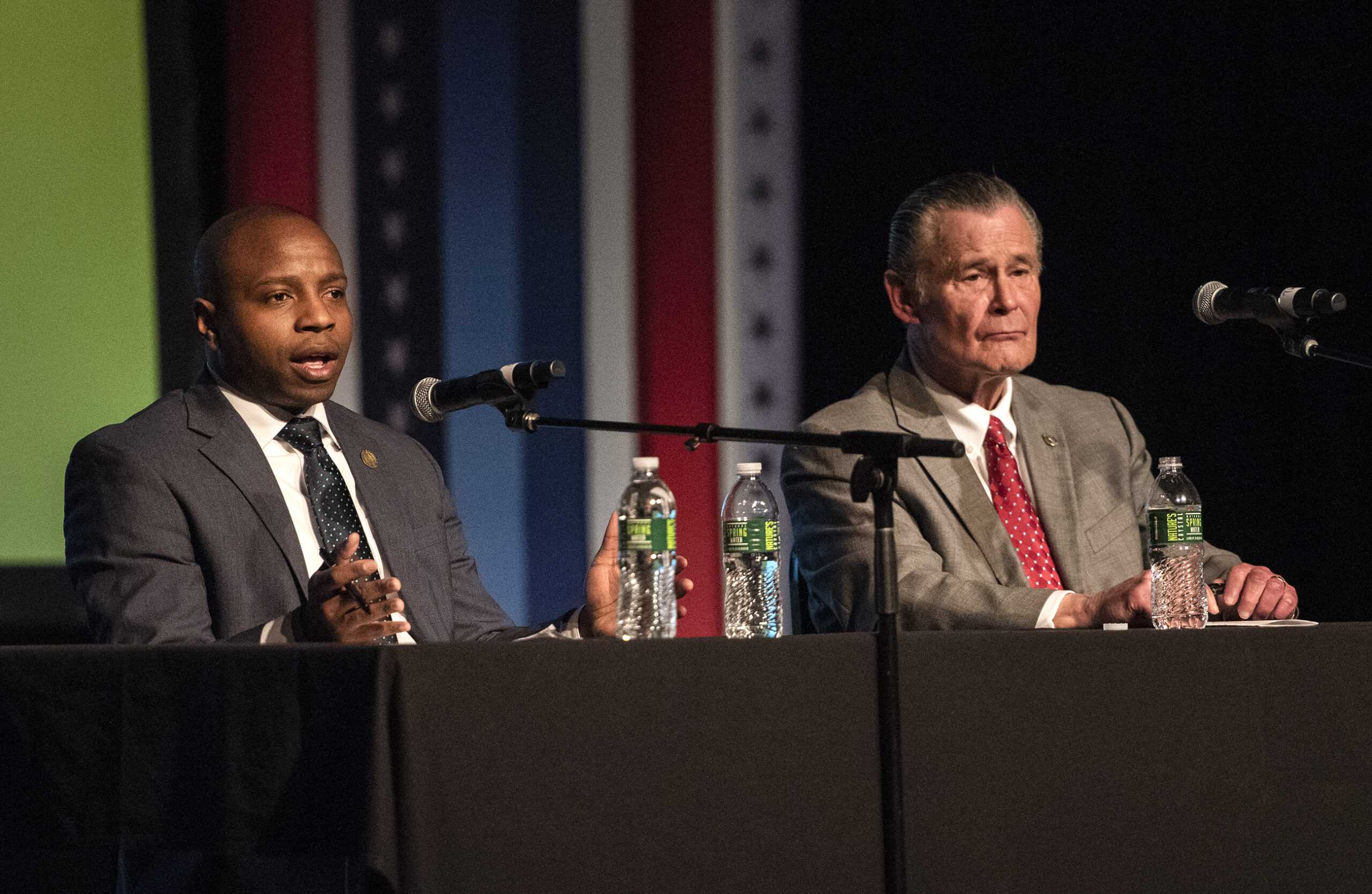
Working so closely with Republicans didn’t sit well with some Democrats, but by all indications, Johnson has been perfectly at home.
He traces his commitment to public service to his childhood. The idea that politics could be a path to make positive changes came when he was 14.
The inspiration derived from Republican former President George W. Bush, who visited Ground Zero in New York City days after the Sept. 11 terrorist attacks. Johnson remembers watching Bush deliver a famous speech to workers at the pile of rubble where the World Trade Center once stood, trying to bring people together.
And in that moment, something clicked.
“Maybe any president could have been there at the time, and maybe the same thing would have happened,” Johnson recalled. “But the fact of the matter is that George W. Bush was there that day. And his presence there, and his caring, inspired me to run for office.”
Johnson decided then and there that he would go into government, that he could use public office to help people, that he could even run for president someday. He still counts Bush as one of his political heroes, alongside former President Barack Obama and the Rev. Martin Luther King Jr.
It’s an unlikely trio, and an unlikely political origin story for an up-and-coming Democrat, whose political ambitions include running for governor someday.
“I think politics has the opportunity to be a force for good,” Johnson said. “If you go back to the earliest origins of my desire to run for office … it was because I wanted to help people. And politics and government was the vehicle.”
‘Man, he’s a driven individual’
Johnson pays homage to his childhood dreams in tangible ways. To this day, he wears the bracelet he got when he was a teenager as part of the YMCA youth scholarship program, where Victor Amaya was his mentor.
Amaya, who now runs an organization affiliated with the Urban Institute called Data You Can Use, was 19 at the time, and remembers the two of them talking about life more as peers than as teacher and student. Amaya was still learning English, and he couldn’t pronounce “Cavalier” when they met.
“And so I’m like, ‘I’m really trying. Can I just call you Chevy?’” Amaya remembered, making a reference to the now-discontinued Chevrolet Cavalier. “And he ran with it.”

Amaya said that even as a teenager, Johnson was a good listener. Amaya was an immigrant who lacked permanent legal status in those days, and while Johnson was an American-born citizen, he still knew how to empathize.
“He was able to relate to an immigrant family,” Amaya said. “He’s able to relate to someone that doesn’t have that similar experience.”
Amaya also remembers the 14-year-old Johnson saying he wanted to run for office, even president. Other people in the YMCA program picked up on it, too. Amaya says people would tell Johnson he sounded “like a politician.” That’s often an insult, but Amaya says the people who knew Johnson never meant it that way.
“I don’t think he takes relationships as transactional,” said Amaya. “I’ve never seen him take on something just because it’s going to benefit him.”
“He kept fighting and working for what he wanted for the vision that he saw for himself. You can’t take that away from him.”
Eyon Biddle
Johnson’s vision didn’t come easily at first. He found plenty of ways to work for other politicians, including Democratic former Gov. Jim Doyle ‘s 2006 reelection campaign and former President Obama’s campaign in Iowa.
But Johnson’s first campaign was a dud. In 2011, at age 25, he ran in a five-way primary for an open seat on the Milwaukee County Board. Johnson placed in a distant fifth, with less than 9 percent of the vote.
“He was very young,” said Eyon Biddle, who won that primary going away. “No facial hair,” he added with a chuckle.
Biddle said Johnson was courteous and passionate, and remembers being impressed by his work ethic. But Biddle had been laying the foundation for his campaign for months before the seat opened up, and had lined up support from organized labor.
Johnson, Biddle said, was still learning what it took to actually build a campaign. He ran for another county board seat in 2012, coming in sixth out of seven candidates, this time with even fewer votes.
Undeterred, Johnson stayed active in politics, getting a city job in the office of former Milwaukee Mayor Tom Barrett. He moved to a neighborhood he was more familiar with, one closer to his parents, and ran for a City Council seat in 2016.
By this time, Biddle was with the Working Families Party, a group that advocates for progressive policies and candidates. They endorsed Johnson, whom Biddle said had become far more polished.
“Oh, yeah. He was a smooth operator by 2016,” Biddle said.
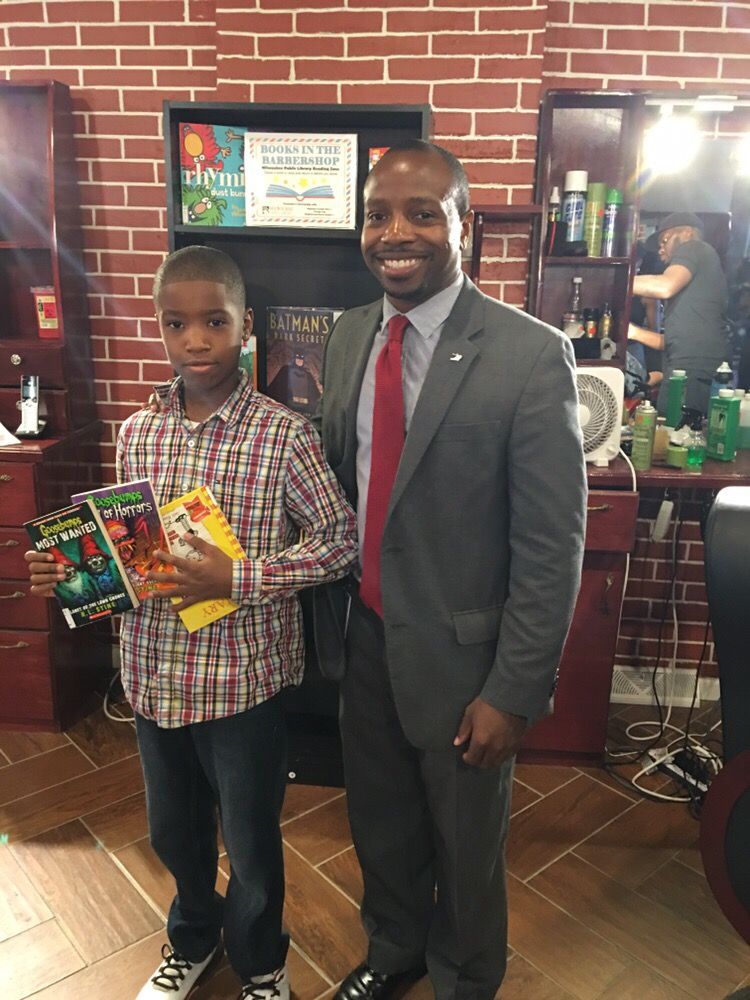
Something had changed since Johnson’s first run for office. Biddle said Johnson knew exactly what it took to win. He was always in the community talking to people — present, genuine, relentless.
“Man, he’s a driven individual,” Biddle said. “His first few races did not go well, and most people would have just tucked their tails and ran. But he kept fighting and working for what he wanted for the vision that he saw for himself. You can’t take that away from him.”
Young Democrat worked with GOP on RNC, sales tax
The next time Johnson had a chance to climb the political ladder, he was ready.
In 2020, Johnson won a rare 8-7 vote for common council president, a job for which he acknowledged he’d been campaigning for years.
And when President Joe Biden nominated Barrett to an ambassadorship, Johnson took over as acting mayor in 2021. He was one of seven candidates who ran for mayor in 2022, but only Johnson could boast that he was already running Milwaukee City Hall.
Around this same time, Johnson found himself in the thick of another campaign, this one an attempt to land the Republican National Convention. He told the site selection committee his story about how President Bush had motivated him to get into politics. Just two weeks before his own election, he flew to Washington, D.C. to make a final pitch for the RNC.
Milwaukee leaders thought they had landed a national convention in 2020, only to see the Democratic National Convention transformed into a mostly virtual event due to COVID-19. A Republican National Convention, he thought, could help put Milwaukee back on the map.
“The thing to me is that the Republican nominee is going to be nominated somewhere,” Johnson said. “So what better way for us to be able to realize our ambitions for growth than to have a national political convention that’s going to be watched the world over come to Milwaukee.”
Johnson’s work with Republicans continued, this time at the state Capitol.
With Milwaukee facing a severe budget shortfall, Johnson reached out to Assembly Speaker Robin Vos, the powerful Republican from Rochester who had helped shape the GOP agenda for more than a decade. Vos also had a long history of blocking big ideas from Democrats, especially when it came to taxes and spending.
But when Johnson became mayor, he says his first call was to Vos. And the speaker listened.
“I guess when you do any elected job for long enough, you try to find people who you think are of goodwill to be able to sit and talk,” Vos said. “So I give credit to the mayor for doing that due diligence and that outreach.”
Johnson lobbied Vos and other Republicans for a local sales tax, arguing it was needed to prevent massive budget cuts that could force layoffs of hundreds of police and firefighters, not to mention potential insolvency.
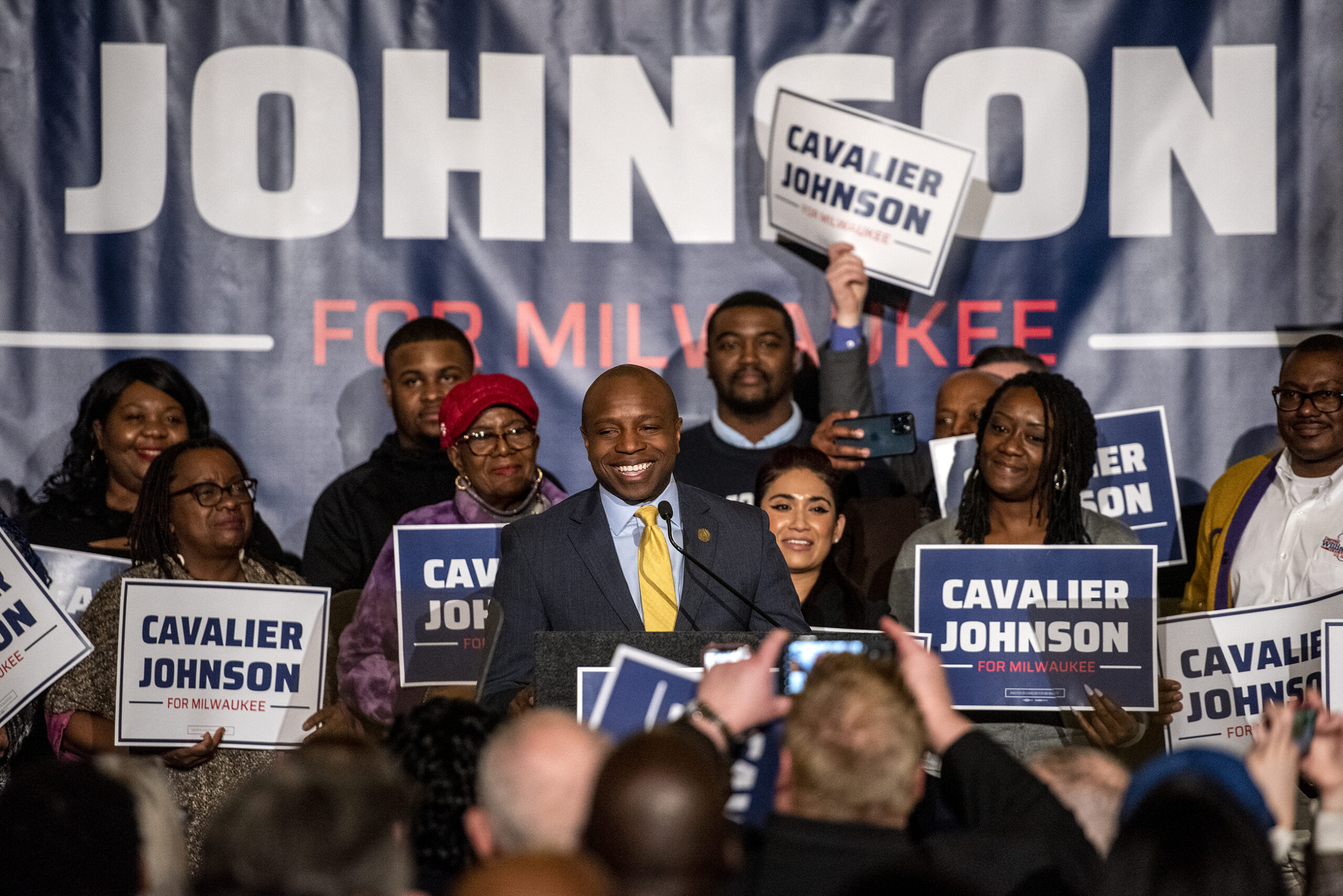
Republicans eventually agreed to a deal that called for a 2 percent sales tax in the city and a 0.4 percent sales tax increase in the county. It also overhauled Wisconsin’s system for funding other local governments, a top priority for Democratic Gov. Tony Evers, who signed the package.
To Johnson, it was a victory. For other Democrats, the deal gave away too much. It was packed full of Republican priorities, like penalizing local governments that cut their police budgets and banning Milwaukee from using its sales tax revenue to hire people in charge of promoting diversity, equity and inclusion.
Throughout negotiations, Vos said Johnson taught him things he didn’t know, and hopes Johnson would say the same about him.
“While we don’t agree on every political issue, I think he’s trustworthy,” Vos said. “And I think he was genuine in his attempt to try to say what’s possible, as opposed to saying, ‘This is what I want,’ and when you don’t hear what you want, you walk away.”
Johnson is interested in running for governor someday
In just a few days, the RNC will bring tens of thousands of visitors to the city. Millions will watch the event on television and via social media, complete with shots of the city’s skyline and other Milwaukee landmarks.
The mayor says he can’t wait to showcase the city where he grew up, and where he now lives with his wife and three children.
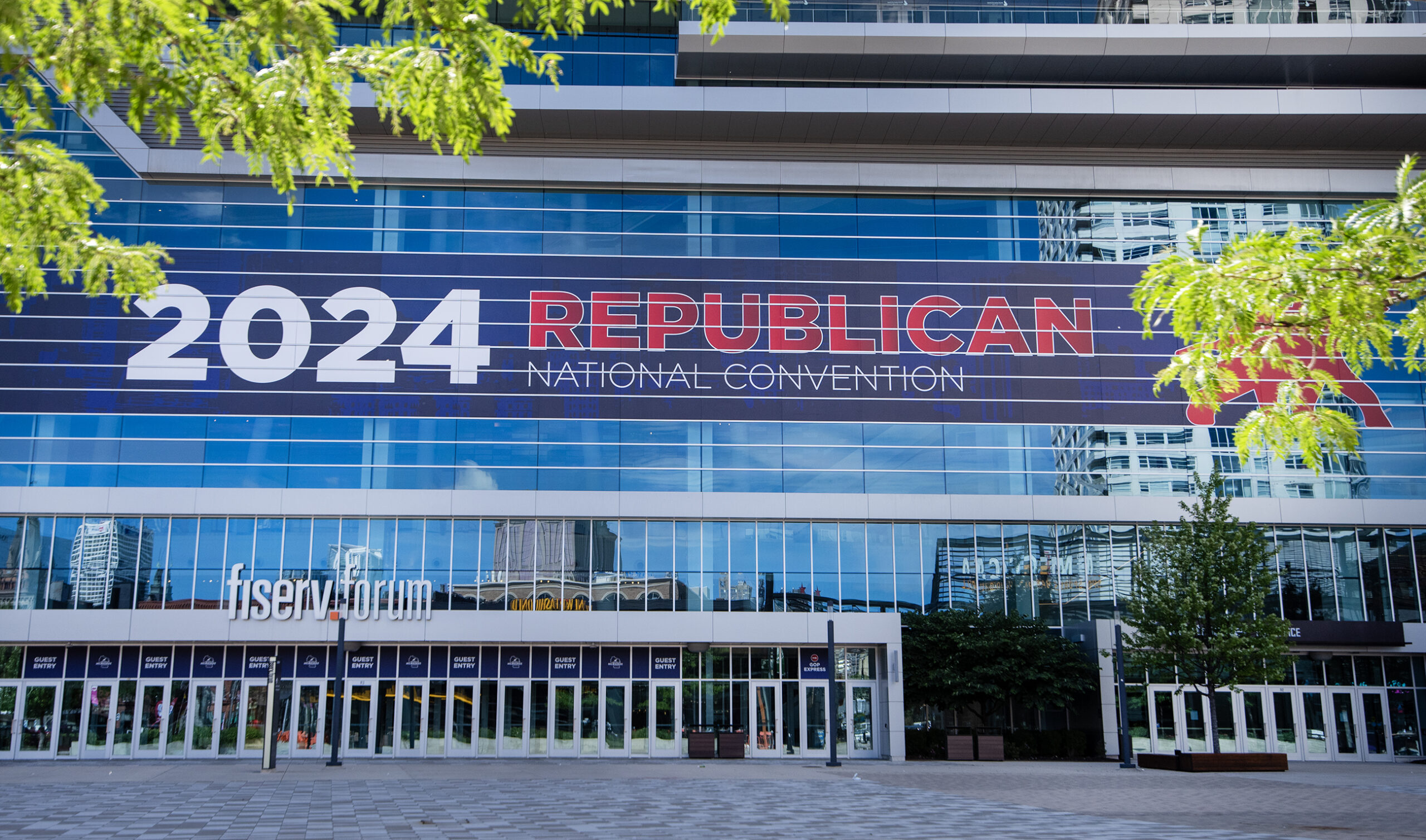
He easily won election to a full four-year term in April, and given the city’s history of keeping mayors in office for decades at a time, the job could plausibly be his for as long as he wants it.
But when asked by WPR what’s next for him, and whether he might want to run for governor should Evers not seek a third term, Johnson answered frankly.
“If Tony Evers decides to run for governor again in 2026, he can count on Mayor Cavalier Johnson supporting him,” Johnson told WPR. “That being said … I’ve got a long future ahead of me. And I think there’ll be opportunities for me to explore other options in the future. Would I be interested in running for governor one day? Absolutely. Absolutely, I would.”
It’s an unusually direct answer for a potential candidate this early in a campaign cycle, especially with Wisconsin’s massive elections for president and U.S. Senate on the horizon this year.
Johnson would have his challenges if he ran for governor. Barrett ran for governor twice as mayor, both times coming up short.
Milwaukee has long been a political punching bag in statewide campaigns. The city has struggled with crime, and while homicides have recently declined, gun violence and reckless driving remain ongoing challenges. The Milwaukee Public Schools system is in the midst of a financial scandal, and student test scores are lagging.
“I can imagine a mayor of Milwaukee running for governor because we’ve seen it happen,” Vos said when asked about the prospect of a Johnson candidacy. “I can’t imagine the mayor of Milwaukee ever winning.”
If Johnson has any such doubts, he doesn’t show them. The mayor, who will turn 38 on the same day as this year’s presidential election, still remembers the way he felt when he first decided he wanted to run for public office, even president, as a teenager. He’s not ready to let go of that feeling.
“You know, there’s a 14-year-old kid inside me somewhere saying yes,” Johnson said with a smile. “So we’ll see what happens.”
Wisconsin Public Radio, © Copyright 2025, Board of Regents of the University of Wisconsin System and Wisconsin Educational Communications Board.

